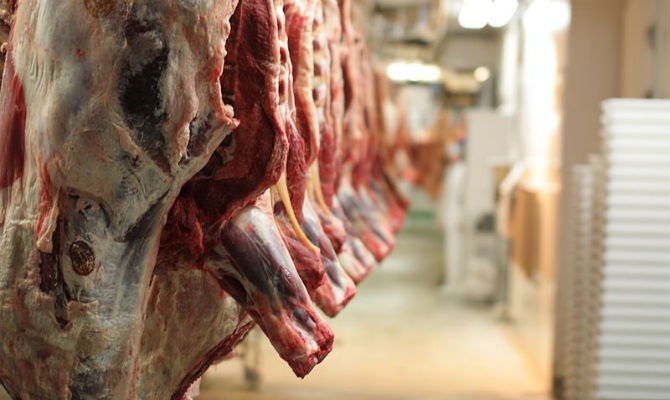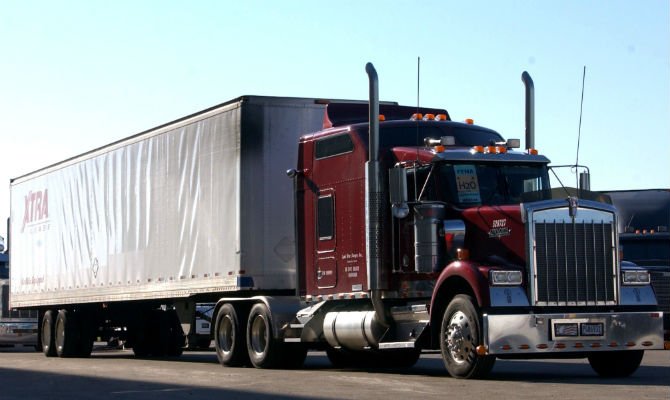A little while ago I wrote a piece about how to be healthy at work (specifically at an office), and it got me thinking about the health risks of different jobs worldwide.
Now, a lot of people DO work in offices--from the executive sitting at a mahogany desk at a hedge fund on Wall Street, to the young man sitting amid the sea of cubicles at a call center in New Delhi--and that work does come with its own health risks. But there are also other jobs, ones you wouldn’t necessarily think of as “dangerous,” that have far graver consequences.
So I did a little research and compiled the list below. I intentionally excluded jobs that have inherent risks that are very much part of the call of duty--such as firemen, police officers, and military personnel--and instead focused on jobs that:
(1) Are typically low-income. The people in these jobs are not paid adequately for the risks they take.
(2) Don’t seem particularly risky on the surface level. With so much of the world’s workforce involved in this kind of labor, some due to lack of other options, it’s important to consider just what health concerns are at stake.
E-waste Recyclers

It’s no big secret that the world is becoming increasingly reliant on electronic devices. This means that a great deal of the world’s trash is e-waste, as old machinery is quickly discarded as soon as it’s “outdated” and quickly replaced by the latest tech advancement. As a result, recycling e-waste has become a job in the informal economy of many developing countries, especially because electronic devices often contain valuable metals like copper and gold. The problem is, however, that it is highly dangerous and virtually unregulated. With lack of proper equipment, or even knowledge about the hazardous materials they are working with, many e-waste recyclers come into direct contact with harmful or poisonous materials like lead, spend long hours inhaling toxic fumes, and cut their hands during the extraction process, allowing dangerous chemicals to enter their bloodstream. A study conducted in India in 2009 found that e-waste recyclers are at extremely high risk for developing bronchitis and asthma. Children workers are particularly at risk, and if they continue the work could become entirely incapacitated by the age of 35.
Meat processing workers

Ever since Upton Sinclair wrote “The Jungle” in 1906, the world has known about the horrors of the US meatpacking industry and the marginalized communities, largely immigrants, who work in it. Well, over 100 years later, little has changed. Work in the meatpacking industry is extremely demanding, and speed is the name of the game, making the highly repetitive motions and dangerous tools involved in the work (rapid cutting, pulling, hanging, all as the process line moves like a ceaseless conveyor belt) all the riskier. A Human Rights Watch report lists an excess of, “cuts, amputations, skin disease, permanent arm and shoulder damage, and even death from the force of repeated hard cutting motions.” Plus, as the report notes, many workers in the US are immigrants from Mexico and Central America with limited English and unaware or unable to advocate for their worker rights, making them particularly vulnerable to exploitation. Just read this 1994 exposé from the Wall Street Journal (which won the Pulitzer Prize) and prepare to be both saddened and horrified.
Long-Haul Truck Driver

Driving a long-haul truck has consistently been ranked as one of the worst jobs in the US because of the relatively low pay and long hours. Even though truckers’ hours are technically regulated, often these laws are disregarded, and truckers are expected to drive up to 14 hours a day, which is particularly dangerous when you consider that road accidents are one of the world’s top 10 causes of death and sleep deprivation doesn’t help with driving. Additionally, the nature of trucking makes it exceedingly difficult to maintain a healthy diet and exercise routine. On the road food is often highly caloric and nutrient deficient. A 2007 study found that 86% of truck drivers in the US were overweight or obese. Another, less obvious health risk of truck-driving is how it leads to the contraction and spread of HIV/ AIDS, particularly in Asia and Africa, where drivers come into frequent contact with with commercial sex workers at truck stops and fail to use proper protection. Just this year, Cameroon’s Minister of Public Health announced that truck drivers are the nation’s highest carriers of HIV/ AIDS.
Loggers & Lumberjacks

Living in New York City, it is sometimes easy for me to forget all of the other industries that exist outside of a highly urban area. The logging industry definitely falls into this category. It’s a world of enormous trees, dense forests, heavy machinery, and…. tremendous risk. According to nearly every list, logging is one of the most dangerous jobs out there. Loggers work in very tough conditions--think heavy loads, steep slopes and bad weather. The biggest threat to loggers are falling tree limbs and malfunctioning chainsaws, and risks are much higher when it is a logger’s first year on the job. Out of every 100,000 loggers, just over 91 die a year. And, as several articles note, despite the high risks, logging is a relatively low-paying gig. For example, in Canada loggers make around just $35,000 year when the national salary average is nearly $15,000 more than that.
Garbage collectors

Garbage collection looks different in every country, but is universally dangerous due to exposure to hazardous materials and the high incident of traffic accidents. There are countless horror stories. In California, a garbage collector was once splattered in human blood that had been buried in clear plastic bags within a trash can as he dumped it into his truck. The same collector had also once picked up a load of garbage that contained low-level radioactive waste. In Canada, one garbageman was badly cut by a broken wine glass that had punctured a garbage bag, and another was killed when an SUV hit him while on pickup duty. Beyond garbage truck pickups, many countries also employ street sweepers as part of their sanitation team. In Rwanda, many women work as street sweepers along the highway without wearing any special or reflective gear even though cars constantly zoom by. There isn’t even any signage to warn drivers to slow down or look out for the workers. In 2009, Kiva, the non-profit that gives micro-credit to people looking to start sustainable businesses in the developing world, found that these street sweepers earn just $3 a day, and work long hours. And yet it’s still a sought-after occupation due to Rwanda’s high unemployment rate.
Fishermen

In my mind, fishing is a peaceful way to spend some time outdoors…. to be in beautiful scenery, to have some father-son bonding time, to feel the satisfying tug of your first big catch on the line. Well, that may be true sometimes, but it certainly isn’t the case with ALL fishing. In fact, commercial fishing is considered the most dangerous profession in the US, particularly in Alaska. The profession has a fatality rate nearly 40 times higher than the national average! This is the kind of fishing we don’t see much of in the movies or hear about during those classic “weekend fishing trip” stories. Instead, commercial fishing involves operating heavy machinery on a tiny vessel out on the high seas, an extremely risky combination, especially when you consider that it can involve near-freezing temperatures. Ships capsizing or sinking are responsible for the most fatalities, while on-board injuries and falling overboard account for some others.
There have been efforts at reform--in Alaska fishermen have been required to wear newly-designed life jackets that are more comfortable to work in, and crabbing boats are now required to transport fewer crab pots to prevent capsizing--but every region has its own specific safety concerns that need to be addressed. And many seas are essentially lawless.
Naturally, there are many more jobs with high risks--mining, construction work, farming-- and it is impossible to make every work environment hazard-free. But in the above industries there is space for tangible improvement, regulation and safety reform. No e-waste recycler, or garbage collector or factory worker is taking that job with the intention of risking their life, and yet that could become the scary reality when safety measures are put into place.
Of course, adequate healthcare coverage for all of the world’s people would also work to combat the intrinsic risks of any job and is crucial to keeping the world’s workforce as happy and healthy as possible. So go to TAKE ACTION NOW and sign a petition to improve healthcare coverage now.